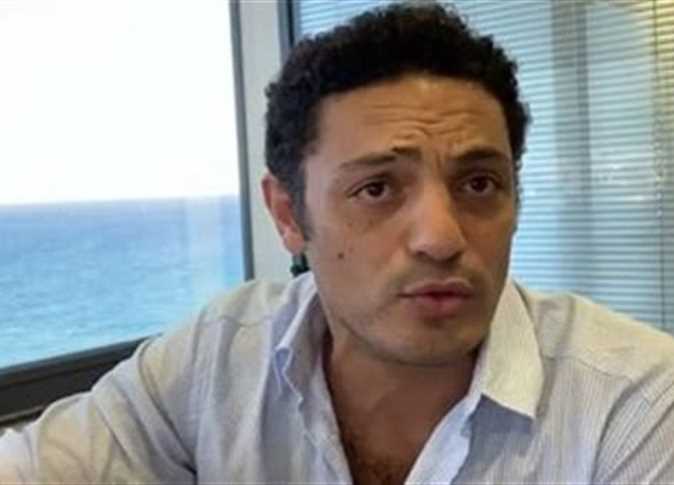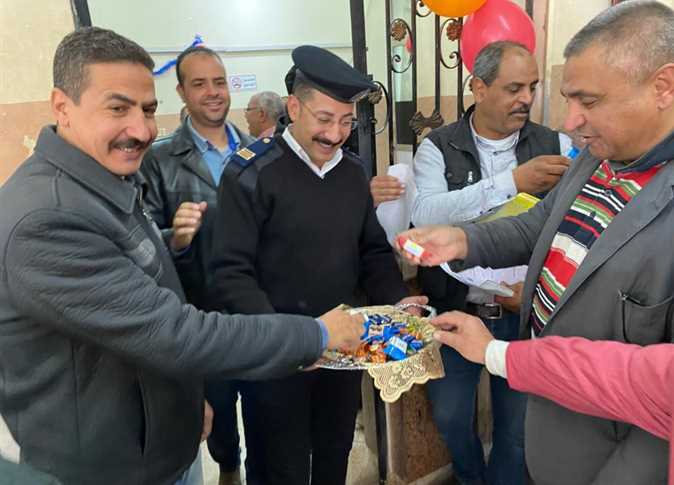As tens of thousands of protesters overwhelmed the nation this week, several first-time protesters explain what prompted them to join their ranks.
“I felt that I have been talking for ages about change and development in Egypt, but never been part of a demonstration asking for these changes,” says Ahmed Awadallah, a 26-year-old pharmacist who joined the “Day of Anger” protest, debuting a side of his personality that he never knew existed. Ahmed, like many others,took to the streets for the first time Tuesday, demanding change. Like many of other protesters, he does not belong to a political party, but he does have a Facebook account.
The past 48 hours witnessed a number of protesters from different backgrounds joining together and marching in the streets, loudly stating their opinions of the current situation in Egypt and asking for long-awaited reforms.
“People are getting frustrated with the current situation,” says Awadallah, whose voice is rough from hours of shouting. “They are inspired by what happened in Tunisia as well. That what makes this demonstration unique in their eyes.”
Awadallah was still home around 2 PM on Tuesday, which was the demonstration’s planned start time. “I found my friends on Facebook and Twitter announcing that they were about to leave their homes to go to the protests, so I decided to leave as well.”
He explains that his feelings were a mixture of happiness to be in the street and fear of the consequences. “There was excitement in the air,” he says, “even when we arrived in Tahrir and we clashed with the Central Security police trying to reach the Parliament.”
The day deteriorated as he had multiple encounters with tear gas, which he describes as a “scary experience, especially when you see people suffocating around you,” and ended with Awadallah on the floor of a tunnel being beaten by police.
“After they showered us with tear gas bombs in Tahrir, we decided to go to the Shubra neighborhood,” Ahmed tells his story, “while passing by Ahmed Helmy Tunnel, we discovered that we were trapped and Central Security officers started running after us. One of them managed to hit me on the head and then repeatedly hit me when I fell to the ground.”
“A girl was on the ground next to me, she was crying loudly as another officer was hitting her,” Awadallah adds.
But that did not change his determination to participate. “I want to go down again on Friday,” he says proudly, despite his injuries. “The only problem standing in my way is my worried family, but personally, I want to go down and join the protests again.”
Youssra al-Hawari, a 27-year-old graphic designer, could not join the protesters on Tuesday for personal reasons, so she decided to take to the streets on Wednesday instead.
“I felt seriously guilty on Tuesday because I could not go, especially that before Tuesday I was actually mocking demonstrations like these,” al-Hawari says, adding that she thought Tuesday’s protests were just another demonstration similar to the 6 April 2008 events.
“The minute I discovered that the State blocked Twitter, I knew it was a different situation than before,” she says. “I was burning at home and I felt that this demonstration is not like anything we ever witnessed in Egypt before.”
When al-Hawari left her house, she wasn’t afraid. “I wasn’t well-aware of what was going on. My family members were against it and the only thing I worried about was hurting them by going to the streets.”
“I couldn’t help leaving the house, though, I didn’t want the things that happened on Tuesday to be a one-time thing. Tuesday needed to leave a mark,” she says.
After struggling to reach Tahrir Square, al-Hawari settled on sitting in one of the cafes with friends. Central Security officers, however, started closing shops and cafes downtown and she and her friends were forced to leave the area.
“I took a cab to go back home when I saw that downtown had turned into a nightmare. I couldn’t leave downtown, however, and I walked fast to a friend’s house asking for safety,” says al-Hawari, who admits she is scared of what might happen Friday but is determined to join in.
“I’m very hopeful for Friday; I know it’s going to be an even better protest than Tuesday.”
Heba al-Sayed, a 33-year-old manager at a recruitment, says she believes today is the day for change and that’s why she decided to take part. “Since I was born, I have known only one president. Anwar al-Sadat died when I was three years old and since then, people were complaining, but no one is doing anything,” al-Sayed says.
“The current events are becoming a beam of light towards change,” al-Sayed says, “we are asking for our simple human rights. I want to see people living in a better state. I want to be able to drive safely late at night without being afraid that a police officer will arrest me under the power of the Emergency Law.”
Al-Sayed says she will “definitely join the protests” on Friday. “I will go down no matter what. I didn’t get scared yesterday when I went downtown and I won’t be scared on Friday.”
For Muhab Wahby, Tuesday and Wednesday’s protests were not his first, but before he had mostly participated in university demonstrations during the second Palestinian intifada.
“I did not expect the turnout that was there at all, or the momentum that the movement has gained in the past two days,” he says. “I am a reformer and development practitioner by profession, so my activism has always been channeled in a different direction than that of protesting. However, my belief in the inevitability of change is profound. Not because I thought it would or will be happening in my lifetime, but because my instincts tell me it’s just the right thing to do.”
While the protest seemed inviting to Wahby, he found it difficult to trust that it would be a non-violent, peaceful demonstration. “We as Egyptians have lost a lot of trust in each other in the past few years,” he explains, “but it continues from Tuesday onward to be a civil rights movement that is void of any party politics and we should capitalize on this phenomenon by supporting it.
“I am out there to regain my fundamental freedoms,” Wahby says.
Wahby says he felt scared until he reached the rally. “In fact, I am always thinking and hardly sleeping, thinking about my country and its stability and the people that are staying up all night protesting in smaller groups.”
“Police have never been more present, they seem scared of a real uprising and that is precisely why I am confident that our message has come across,” Wahby explains. “Nevertheless we know they are brutal,” he adds.
Like the others, who are determined to make their voices heard despite their fears or the reservations of their families, Wahby says that he is “going back every day.” He believes that his “presence on the street, even if I am walking around is sufficient to support this civil rights movement. I just want more families to join.”




